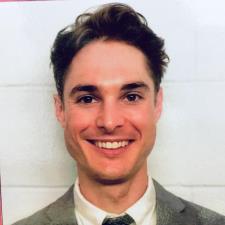
Robert S. answered • 12/22/19
Expert Professional Songwriter with global charting releases
Hi there!
Just like you, I was driven to compose and record because of film soundtracks and instrumental music. Without the distraction of lyrics, I found that I got so engrossed in the instrumentation and the emotional nuances that the composer had so clearly worked hard to create! That's where I started and now, many years later, I have a whole trove of my own compositions that I made specifically with film in mind.
To your questions:
- No, music theory is not necessary to compose music. I would argue, in fact, that composing without the constraints of music theory often leads to unique and interesting compositions. Once again, I did the same: I started by just fiddling around with DAWs and educating myself on the basics by searching Google for answers (all while having a limited grounding in music theory), and my compositions all ended up with this strange, unique sound because all my choices were based on instinct - instrumentation, chord progressions, melody lines, composition structure, etc. Later, when I brushed up on my music theory, I laughed when I listened back to my compositions - not because they were bad, but because I felt proud that I had created something that broke so many of the "rules" that western music typically follows.
- When dealing specifically with a DAW, your first decision should be which one you feel most comfortable with. They all do the same thing, but they mostly have pretty distinct layouts which can either make you feel excited to explore all the tools, or overwhelmed by all the choices. Here's a great article for a start: https://blog.landr.com/best-daw/ . Some of these cost a lot and, though I've been recording and producing for a long time, I have not found myself constrained by using GarageBand (free), and a cracked version of ProTools (my band's latest EP was all stitched together in a hiccuping version of ProTools that looks like it crawled out of a dumpster from the 80s!) The stuff you will need to learn in order to compose in a DAW will be things like: how to make sure your sound is coming out where you want (headphones or built in speaker); how to select a software instrument (Logic, for example, has everything you could want from simple piano to string quartets, to world instruments like talking drums); how to bring up the keyboard feature so you can use your computer keyboard to play notes; how to record enable a track; how to manipulate MIDI notes so that any imperfections can be ironed out; and then how to mix (which in its most basic form just means adjusting the volume of the individual sounds so that they blend together in a way that sounds good to you. You're a computer engineer so it sounds like it'll be a cinch for you! As you start doing this, you'll notice that there are a lot of tools in the DAW that you aren't using, and that's when you go back on some simple Google expeditions :)
- Learning the piano is only a good thing, for anyone of any age, and I often kick myself for not keeping up my lessons when I was a kid. If you have time and can afford it, buy a keyboard and teach yourself or work with a tutor and you'll never regret it! Again, it's not necessary to be able to play an instrument in order to create wonderful things using a DAW, but you will find that your work and play when composing will be faster and more enjoyable if you use a MIDI keyboard to trigger the sounds that you work with in the DAW. Here is the one I got when I started and I highly recommend it: https://www.amazon.com/Akai-Professional-LPK25-Ultra-Portable-Controller/dp/B002M8GBDI/ref=asc_df_B002M8GBDI/?tag=hyprod-20&linkCode=df0&hvadid=198093834376&hvpos=1o3&hvnetw=g&hvrand=2076699043215805176&hvpone=&hvptwo=&hvqmt=&hvdev=c&hvdvcmdl=&hvlocint=&hvlocphy=9004160&hvtargid=pla-372480235575&psc=1
I'll pass on one final piece of advice - something that was given to me when I was starting out: look at your first pieces of work in music as experiments, try not what you think you should try but whatever you want to try. Look at it as producing many different (and probably bad) things at first, and then perfecting things later, after you've logged as many hours of experimentation as you can! Be fearless!
Good luck!




